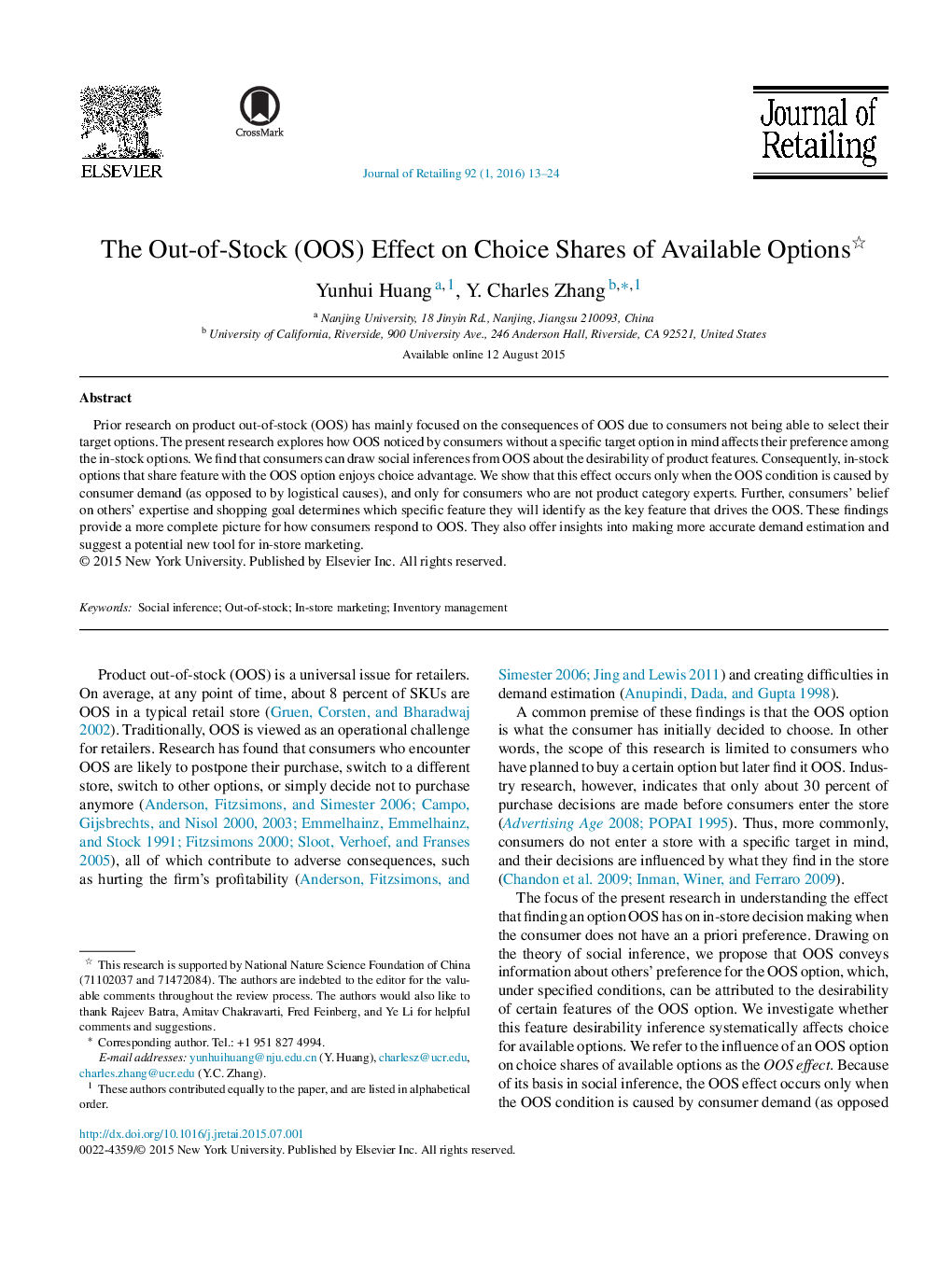| Article ID | Journal | Published Year | Pages | File Type |
|---|---|---|---|---|
| 886234 | Journal of Retailing | 2016 | 12 Pages |
•Out-of-stock is informative about the desirability of product features.•Consumers’ choices shift toward options that share features with the OOS option.•The effect only occurs among non-experts and when the OOS is driven by demand.•The informational value of OOS is affected by others’ expertise and shopping goals.
Prior research on product out-of-stock (OOS) has mainly focused on the consequences of OOS due to consumers not being able to select their target options. The present research explores how OOS noticed by consumers without a specific target option in mind affects their preference among the in-stock options. We find that consumers can draw social inferences from OOS about the desirability of product features. Consequently, in-stock options that share feature with the OOS option enjoys choice advantage. We show that this effect occurs only when the OOS condition is caused by consumer demand (as opposed to by logistical causes), and only for consumers who are not product category experts. Further, consumers’ belief on others’ expertise and shopping goal determines which specific feature they will identify as the key feature that drives the OOS. These findings provide a more complete picture for how consumers respond to OOS. They also offer insights into making more accurate demand estimation and suggest a potential new tool for in-store marketing.
Graphical abstractFigure optionsDownload full-size imageDownload as PowerPoint slide
